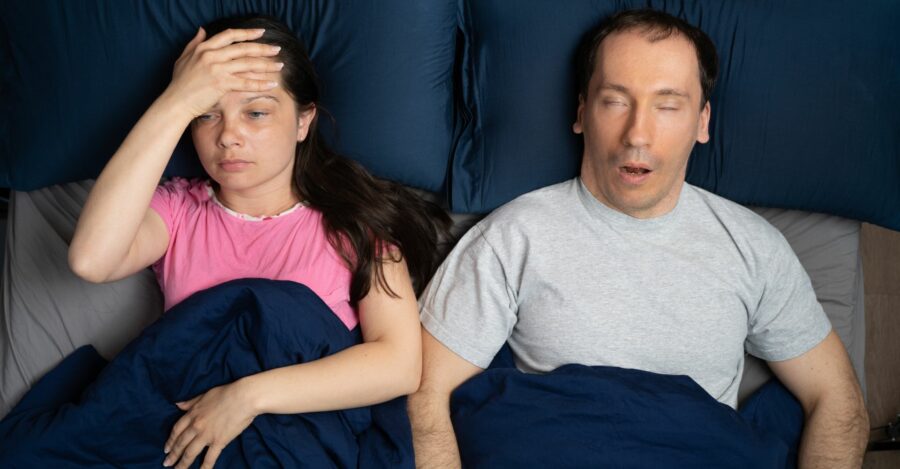With alarming new stats showing that up to 1 in 4 men and 1 in 10 women in America will be diagnosed with sleep apnea this year early detection is highly suggested.1 This sleep disorder can severely affect the health of your body leading to other health implications so knowing what to do has never been so important. To learn the early warning signs of sleep apnea start an online search today.
What Exactly Is Sleep Apnea?
A prevalent sleep problem that affects millions of people worldwide is sleep apnea. It is characterised by frequent breathing pauses during sleep, which can last for a few seconds to several minutes. These pauses in breathing can prevent the brain from receiving enough oxygen and disturb sleep. Serious health issues like high blood pressure, heart disease, and stroke can develop as a result of sleep apnea over time. Obstructive Sleep Apnea (OSA) and Central Sleep Apnea are the two main kinds of sleep apnea (CSA). While CSA is brought on by the brain’s inability to send the right signals to the muscles that control breathing, OSA is brought on by a physical obstruction in the airway, such as the tonsils or tongue.
Who Is Most At Risk?
The likelihood of developing sleep apnea is higher in men, those over the age of 40, and overweight or obese people. A family history of sleep apnea, smoking, drinking alcohol, or using sedatives are additional risk factors.2 The condition is also more prone to occur in those with large tonsils and tongues, limited airways, and large necks. Women are more prone to get sleep apnea after menopause, and the likelihood of having it rises with age. Additionally, the severity of sleep apnea often worsens gradually over time. Even while the prevalence of sleep apnea seems to stabilise around the age of 65, it is still possible to develop the condition later in life.
Sleep Apnea Can Lead To Other Health Concerns
Lack of oxygen while sleeping can lead to high blood pressure, cardiac issues, type 2 diabetes, and metabolic syndromes if sleep apnea is left untreated.3
What Are The Early Warning Signs?
- A loud snore
- breathing pauses while sleeping
- breathing heavily while you sleep
- experiencing morning dry mouth
- waking up with a headache
- difficulty remaining asleep
- severe drowsiness during the day
- difficulty staying focused during the day
- Having a bad mood
How Is Sleep Apnea Diagnosed?
A sleep study, which can be carried out at home using portable equipment or at a sleep laboratory, is typically used to diagnose sleep apnea. Patients are observed for indications of breathing pauses, oxygen levels, and other sleep apnea-related characteristics during a sleep study. A sleep expert may also conduct a physical examination, enquire about symptoms and medical background, and prescribe medications.
Are There Any Treatments Available?
- OSA is frequently treated with continuous positive airway pressure (CPAP). CPAP involves sleeping with a mask placed over the nose or mouth that continuously blows air to keep the airway open. An oral appliance, a custom-fitted mouthguard that helps keep the airway open by realigning the jaw and tongue, is another frequent device used to treat sleep apnea.4
- Surgery may be required in severe cases of sleep apnea to remove extra tissue from the throat or to correct structural issues that are causing the condition. In addition to these therapies, sleep apnea medicines are also readily available. These drugs should only be used in conjunction with other therapies, as they cannot replace a change in lifestyle or other types of therapy.
Contact A Local Specialist For A Diagnosis
If you’re experiencing any of the early warning signs then a low cost diagnosis is your best defence against sleep apnea. Keep your family safe and well informed with routine check ups can safeguard your life and keep you in a healthy state of being. Professionals are available across the entire nation and ready to book in your early detection screening today.
See Early Symptoms of Sleep Apnea
Reference:




